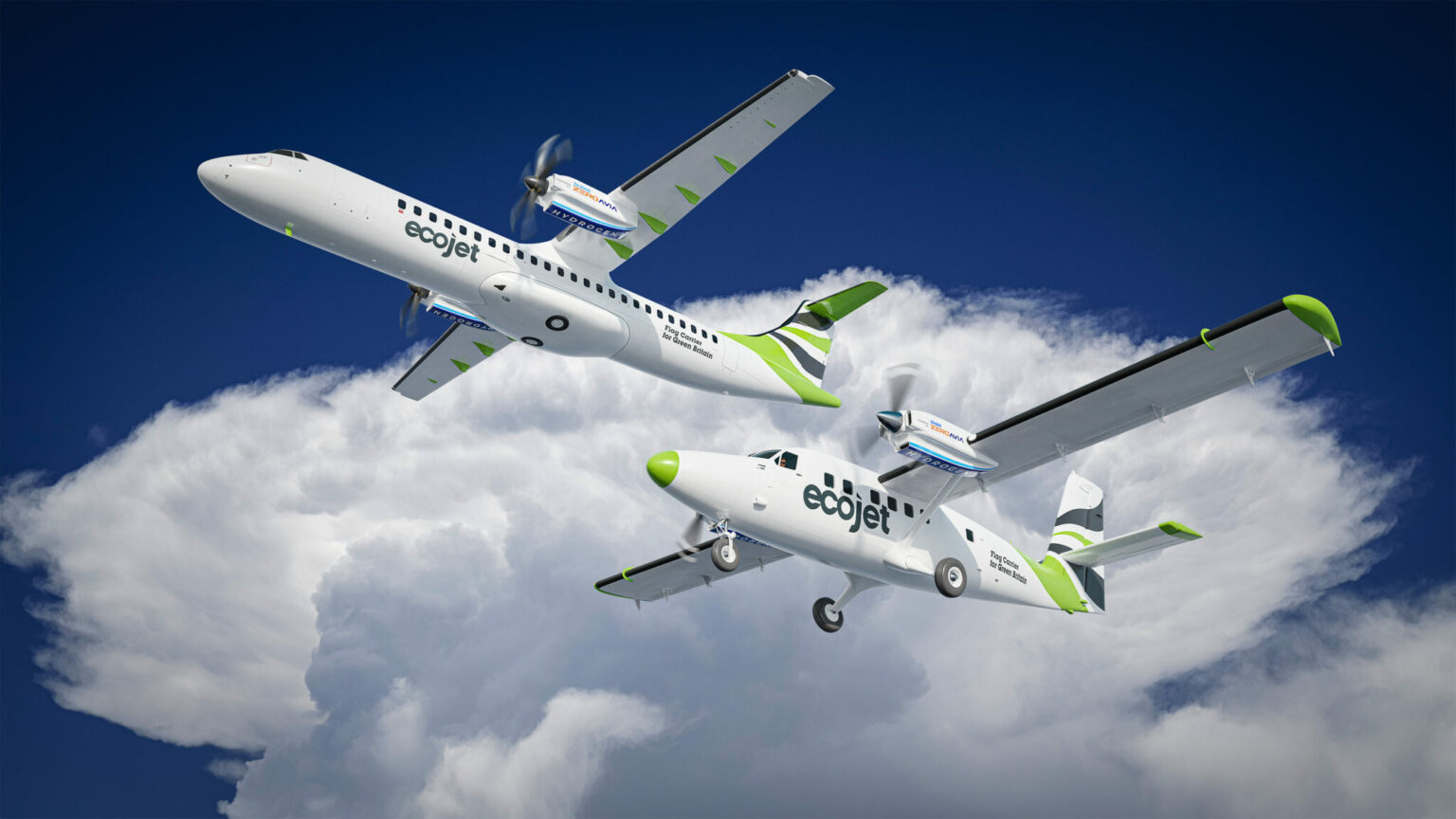ZeroAvia has inked a deal with EcoJet, an airline aspiring to be the flag carrier for a green Britain. The agreement encompasses up to 70 hydrogen-electric, zero-emission engines, marking a significant step toward realizing the world’s first electric airline.
EcoJet, set to commence operations in 2024 with conventionally powered aircraft on routes to and from Edinburgh, has ambitious plans to retrofit its fleet with ZeroAvia’s ZA600 engines. The ultimate objective is to establish EcoJet as a pioneer in electric aviation, with a commitment to achieving net-zero emissions and redefining air travel in the UK.
ZeroAvia’s hydrogen-electric engines, specifically the ZA600 and the more powerful ZA2000, are central to this transformative initiative. The ZA600, targeted for certification by 2025, will be retrofitted into EcoJet’s existing fleet, enabling it to operate as a hydrogen-electric airline. The ZA2000, designed for larger regional turboprops, aims for an entry-into-service date of 2027.
Hydrogen-electric engines operate by using hydrogen in fuel cells to generate electricity, subsequently powering electric motors to drive the aircraft’s propellers. The process produces only water as an emission, positioning it as a green and sustainable alternative to conventional aviation fuels.
ZeroAvia, EcoJet, and their lessor partner MONTE are set to collaborate with airports and industry partners to establish the first pathways for hydrogen-electric commercial operations. This collaborative approach underscores the industry’s commitment to overcoming challenges and driving the adoption of sustainable aviation practices.
